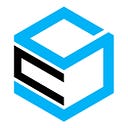What is KYC for Global Grid Token Sales
When you sign up for Global Grids Token Generation Event and wish to purchase our BitSun tokens you will be faced with supplying information under the KYC (Know Your Customer) regulations.
Under a number of jurisdictions, authorities mandate that any individual conducting financial transactions needs to have their identity verified. The process is designed to limit money laundering, terrorism funding, corruption and other illegal activities. The desired outcome is that financial institutions accurately identify their customers:
Although some may object to the identification process, KYC protects both the long-term health of Global Grid as a company as well as token sale backers. If we want to interact with other partners and to avoid breeching anti money laundering legislation, we need to undertake this identification process.
The KYC process is the only way Global Grid can check the source of funds raised during the token sale, and we do so by verifying each buyer’s identity and residency. This is something that isn’t only required by governments and regulators, but also by the banks, large corporations, and public bodies we’re interacting with in our energy exchange platform and in developing the energy infrastructure projects globally.
We have evaluated numerous third-party KYC providers and automated systems to verify the data collected and have decided that the process is best conducted in house. Outsourcing the KYC process entails transmitting the data and documents halfway around the world to a call centre where other people would then review your information. This will serve two purposes, firstly securing the data locally and avoiding not knowing exactly who’s handling these documents and to make sure the information is used only for the specific purpose required by Global Grid for it’s token sale.
KYC Process
Once you register on our website, enter your Ethereum wallet information and the amount you want to contribute. After that, you’ll come to the first step of KYC, which is to verify your identity. There are various documents you can use, like a nationally recognized passport, your identity card, or driver’s license. The next step is to verify your residency. Again, you have multiple options. You can use a utility bill. You can use a bank statement. You can also use some sort of official government letter that shows your address.
KYC Push Back
We know not everyone is happy about KYC and some people don’t agree with it ideologically, especially when it comes to cryptocurrencies, where transfers are anonymous, or at least pseudo anonymous. However, to be a legitimate partner to public authorities and large companies, our partners and even our bank — we need to be sure that the sources of all funds raised in token sale are legitimate. We will ensure that no funds we receive will come from any illicit sources, people or organizations.
KYD
In addition to KYC Global Grid will be implementing Know Your Device (KYD) process to protect data generated through our blockchain embedded mobile hardware devices. As mobile continues to proliferate as a key means of conducting business — from transferring funds to generating user energy usage data, fraudsters are lining up to intercept, manipulate or corrupt that data. We will implement the KYD process and take a stand to deter the fraudsters to not only protect our interests, but also the interests of our investors and customers, this will also enhance the whole customer transaction experience.
The Real Benefit
It’s important that we do these checks because it protects you as a contributor to the project, and the company. Any funds that are derived from illicit sources jeopardise the companies’ reputation and can trigger investigations that destabilize the company and reduce its ability to generate revenue and fulfil its goals and objectives.
Certain countries also prevent their citizens from participating in Token sales and we need to ensure that we do not accept funds from those localities either through deliberate deception or an inadvertent error.
The bottom line is we’re doing this not only to protect the project, but to protect you, as token buyers, from the possibility that anyone could claim these funds aren’t legitimate.
